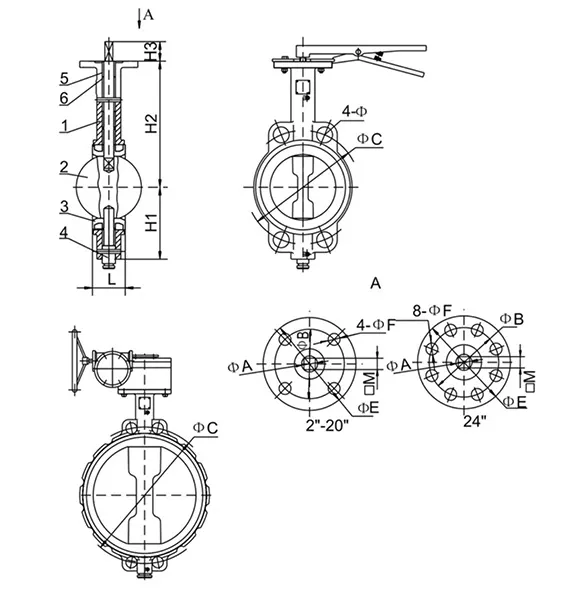Sep . 26, 2024 03:12 Back to list
electronic ball valve
The Importance and Functionality of Electronic Ball Valves in Modern Systems
In recent years, electronic ball valves have emerged as a crucial component in various industries, ranging from manufacturing and chemical processing to HVAC (heating, ventilation, and air conditioning) systems. Their unique design, precision control, and integration with digital systems make them a popular choice for applications where reliable and efficient fluid control is essential. This article explores the functionality, advantages, and applications of electronic ball valves, highlighting their significance in modern automation and control systems.
Understanding Electronic Ball Valves
An electronic ball valve consists of a spherical disc (the ball) with a hole (or port) through its center, which directly controls the flow of fluid. The ball is mounted on a shaft and operates via an electronic actuator that provides the necessary torque to turn the ball from a fully open to a fully closed position. The actuator can be controlled digitally, allowing for precise flow regulation based on real-time data and system requirements.
Electronic ball valves can be operated using various protocols, including modulating control (for varying flow rates) and on/off control (for complete open or closed states). This versatility makes them suitable for a wide range of applications, ensuring optimal performance and responsiveness in dynamic environments.
Key Advantages
1. Precision and Control One of the most significant advantages of electronic ball valves is their ability to provide precise control over flow rates. This level of control is critical in industries like pharmaceuticals and food processing, where even minor variations can impact product quality and safety.
2. Automation Compatibility Electronic ball valves can be easily integrated into automated systems, allowing for seamless communication with sensors, controllers, and other devices. This integration enhances the efficiency of systems, enabling remote monitoring and control that can significantly reduce labor costs and human error.
3. Energy Efficiency As industries aim to reduce energy consumption and minimize waste, electronic ball valves provide a solution by offering optimized flow control. This capability ensures that systems operate more efficiently, reducing energy costs and environmental impact.
4. Durability and Maintenance Built from robust materials, electronic ball valves often exhibit exceptional durability and resistance to corrosion and temperature fluctuations. Additionally, many modern designs require minimal maintenance, further increasing their appeal for industrial applications.
electronic ball valve

5. User-Friendly Interfaces The digital nature of electronic ball valves often comes with programmable settings, making it easier for operators to set parameters, troubleshoot issues, and perform diagnostics. This user-friendly approach enhances operational efficiency and reduces the time required for training new personnel.
Applications
The versatility of electronic ball valves translates to a wide array of applications across different industries
- Chemical Processing In chemical plants, electronic ball valves accurately control the flow of corrosive substances, ensuring safety and efficiency in production processes.
- Water Treatment These valves are employed in water treatment facilities to manage the flow of water while ensuring compliance with environmental regulations during purification processes.
- HVAC Systems In heating and cooling applications, electronic ball valves are used to regulate the flow of water or refrigerant, contributing to the efficient operation of climate control systems.
- Oil and Gas Electronic ball valves are often found in oil and gas applications where precise control of fluids is essential, mitigating risks and improving extraction efficiency.
Conclusion
In a world where precision, reliability, and efficiency are paramount, electronic ball valves provide a sophisticated solution for fluid control needs across various industries. Their ability to integrate into automated systems, offer precise control, and withstand harsh conditions underscores their importance in modern applications. As technology continues to advance, the role of electronic ball valves is expected to expand, further enhancing industrial processes and contributing to more efficient operations. Investing in electronic ball valves not only streamlines control systems but also paves the way for a more sustainable and efficient future in fluid management.
Share
-
Reliable Wafer Type Butterfly Valves for Every IndustryNewsJul.25,2025
-
Reliable Flow Control Begins with the Right Ball Check ValveNewsJul.25,2025
-
Precision Flow Control Starts with Quality ValvesNewsJul.25,2025
-
Industrial Flow Control ReliabilityNewsJul.25,2025
-
Engineered for Efficiency Gate Valves That Power Industrial PerformanceNewsJul.25,2025
-
Empowering Infrastructure Through Quality ManufacturingNewsJul.25,2025